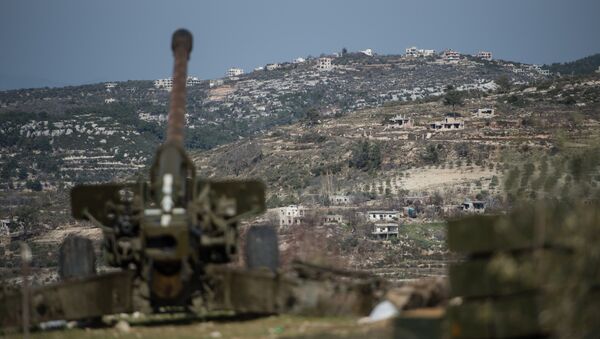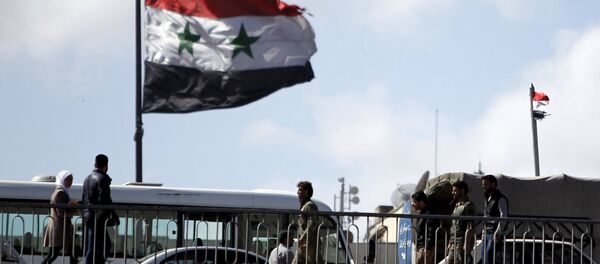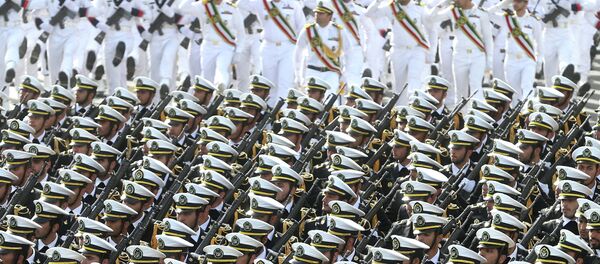The deal, which was discussed earlier this week during talks between the Presidents of Russia and Turkey in Sochi, was signed at the end of the fourth round of Syrian peace talks in the capital of Kazakhstan. It will allow for the creation of "de-escalation zones" in the Idlib province, to the north of the city of Homs, in Eastern Ghouta and in the south of Syria.
Syrian government and opposition forces would be precluded from engaging each other in the designated areas by means of guarantor-run security buffers, checkpoints and observation posts that could encourage refugees to return to the war-torn country.
"We agreed that the de-escalation zones will be established for a period of six months with the option of automatic extension for another six months unless there will not be some circumstances and the guarantor states will take the other decision. The memorandum can be indefinite if needed," Alexander Lavrentyev, Russian delegation head at Astana talks and Special Presidential Representative for Syria, told reporters on Thursday.
Military analyst Alexander Perendzhiev, associate professor of the Department of Political Science and Sociology at the Plekhanov Russian University of Economics and a lieutenant colonel in reserve, told RIA Novosti that the memorandum is a big step forward in resolving the Syrian crisis.
"The memorandum signed in Astana on the four safe zones in Syria will be a big step towards a peaceful settlement in the country. Now opposition groups which want to make peace will be able to seek compromises with the Syrian government within a legal framework. The guarantees from Russia, Iran and Turkey allow forces to be focused on the fight against terrorists, who don't want peace," the analyst said.
"The memorandum declares that these zones won't contradict the principle of preserving the sovereignty and territorial integrity of the Syrian Arab Republic," the analyst noted.
"However, the example of the creation of occupation zones in post-war Germany shows that these can remain for a long time. In 1945, there was talk of a united Germany, but in practice, and, not through the fault of the USSR, three states emerged: the German Democratic Republic, the Federal Republic of Germany and West Berlin. And even today in Germany there are American troops, and the government is controlled by the United States."
"We need to remember this experience today so as not to repeat it with current allies in the fight against international terrorism in Syria," Perendzhiev concluded.
On Friday, chief of the Russian General Staff's Main Operational Directorate Col. Gen. Sergei Rudskoi said that Russian Aerospace Forces had already ceased activities in the safe zones defined by the memorandum.
"From 00.00 on May 1, the use of the aircraft of the Russian Aerospace Forces in areas corresponding to the de-escalation zones defined by the memorandum was stopped," Rudskoi said.




